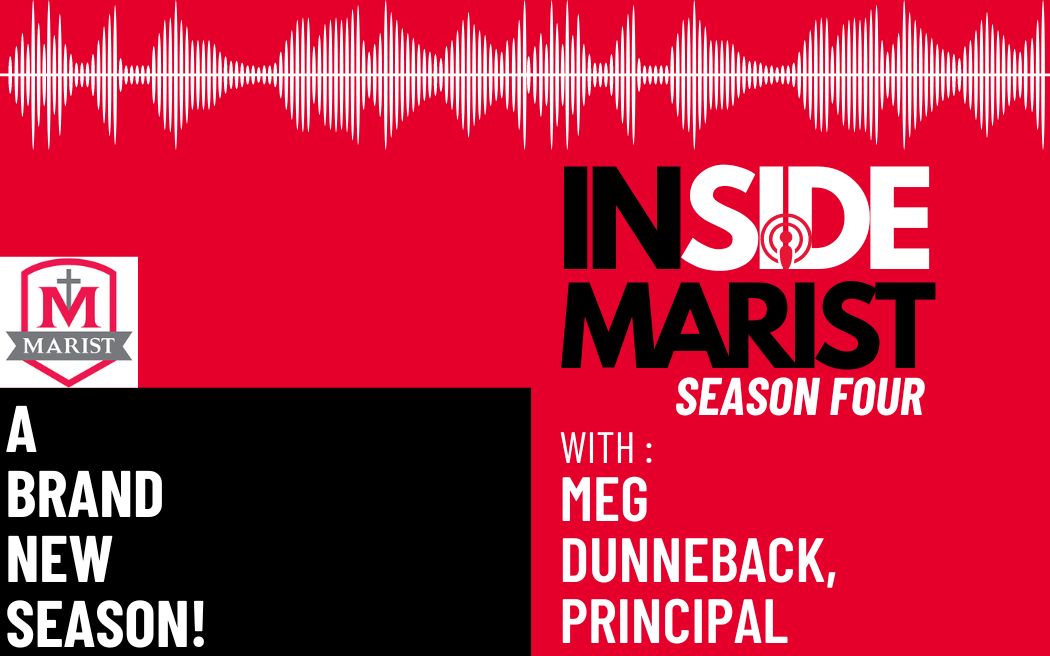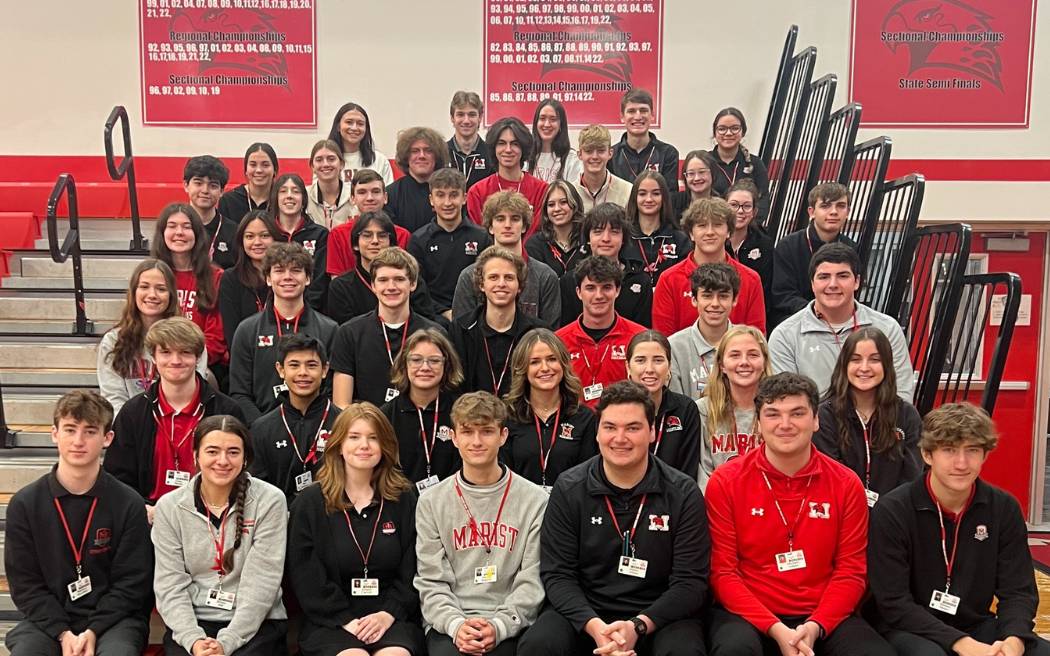Marist science teacher Ms. Olivia Rydzewski was recently published in the fall 2023 edition of The Ohio Journal of Teacher Education! Olivia’s research for the article titled “Preservice Teacher Reflection: A Trio of Strategies and Their Effectiveness,” began during her senior year of college when she was student teaching. Olivia was attending the University of Findlay in Ohio when one of her professors asked Olivia to collaborate on a research project.

“This was during a time where my college of education (at the University of Findlay) was actively pursuing new methods of reflection for student teachers,” said Olivia “The current weekly reflection method at that time was a mundane worksheet consisting of 4 or 5 questions that were the same every week. I felt like I got very little out of this, so I agreed to be on the project.”
Through the research, they implemented a trio of strategies: journaling, video analysis, and mentor discussions. Olivia explains the process below:
“Essentially, I would record a few videos of myself teaching, choose which ones I wanted to discuss with my cooperating teacher, record the audio of our discussion, transcribe that audio and code it for themes. In coding these transcriptions for themes I found a variety of repeating themes for things such as areas of improvement, areas of strength, praise or critique from my mentor, etc. After having a discussion with my mentor, I’d journal about what I specifically learned that week, how it could be improved, and how this improvement would impact my students.”
This process was able to give Olivia a “much deeper reflection” about her own teaching. She felt this was more beneficial to her then the previous worksheet she filled out in class.
“It made me able to see myself teaching in real time via videos and recognize things I would have never realized about how I compose myself in the classroom!” Said Olivia.
With the publication of this research, Olivia hopes that colleges of education adapt a similar reflection strategy, or at the very least allow teachers to individually reflect in a similar manner.
Below is an abstract of the article:
Though there are competing reflective traditions used by teachers, reflection has been a staple professional development tool since the earliest days of public education. Using Dewey’s work as a guide, one preservice teacher used an action research methodology to better understand that her own reflection occurred in at least four ways. These include that reflection 1) occurs powerfully within a community, 2) marked the beginning of a
meaning-making process with a moral end 3) should be systematic and demonstrate rigorous thinking 4) that it facilitated personal and intellectual growth. Reflective work included video analysis of lessons, mentor discussions, and private journaling. A mentor survey collected twice served as additional data sources. Findings included significant benefits in the use of the reflective strategies to facilitate professional growth toward
becoming a more empowered teacher. As a preservice teacher, I often found myself questioning how to identify areas of strengths and areas in need of improvement within my professional practices. Though weekly reflective journaling was commonplace within my teacher preparation program when we were in field placements, I wished for a method that yielded a more indepth reflection that would lead to a purposeful change in classroom practices. In my search for a more powerful method, I looked at tools used in research on teacher and preservice reflection.
Olivia’s research is a happy coincidence with the Marist Pillar of Presence that is our school year theme. At the beginning of the year, Meg Dunneback asked our teachers to reflect on what it is we do that make us Marist educators. She gave faculty little mirrors as part of this exercise, similar to Olivia’s research. We are so proud of Olivia and thankful to have such thoughtful, reflective and hard working teachers in our building here at Marist.
Olivia has been at Marist for three school years and currently teaching chemistry and forensics. Outside of the classroom, she’s an assistant softball coach and a science club moderator.
Academics at Marist
Marist High School prides itself on providing an innovative curriculum that both strengthens and challenges each student. Through a well balanced course load, rich with interesting and dynamic electives, students graduate prepared for higher education and life.







